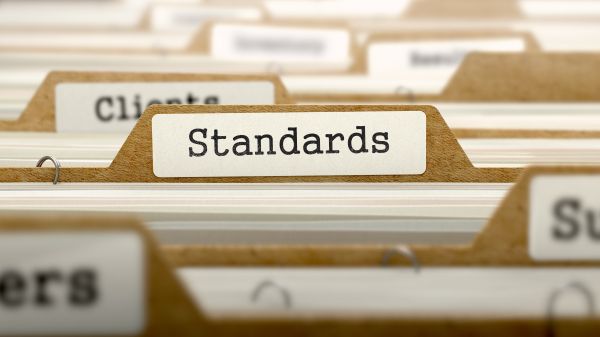Today’s post brings our series on ISO certifications to an end. It enables you to look at various standards from a different perspective and learn about their real influence on the enterprise’s operation.
In case of entities offering translation services, the ISO 17100 standard is undoubtedly of utmost importance, as it provides an objective confirmation of diligent translation.
ISO 17100:2015 content – interpretation and important aspects
The version published in 2015 contains a complex, extensive set of guidelines covering every aspect of a translation agency’s operation. Contents of ISO 17100 include stringent requirements regarding processes, resources and qualifications of coworkers, ensuring consistent, high quality of performed translations. It should also be highlighted that the standard concerns written translations. Even though audits are usually performed at translation agencies, the certification may also be granted to independent, stable translation teams and translation departments at large firms and institutions.
ISO 17100:2015 is the first standard providing such detailed requirements for translation agencies. The prerequisite to obtain the certification is thorough knowledge regarding human resources and administrative processes taking place during service completion. Foreign business partners treat the certification as a sign of credibility and professionalism. Such a company stands out from the competition. Moreover, it is an extensive source of industry nomenclature, precisely defining over 40 terms, many of which were subject to long-lasting disputes. How does official text that can be found in the content of the ISO 17100 standard relate to daily operation of a translation agency?
ISO 17100 requirements vs daily work in the translation industry
The wide range of aspects covered by the updated standard includes not only the sole act of translating, but also the accompanying actions – such as customer service, skillful use of CAT tools or translation memories, task automation and project management. It is the prerequisites regarding human resources and professional qualification, however, that are the core of the ISO 17100 standard. According to the text, translations performed by a certified entity can be completed only by professionals who have either graduated a translation-related major or boast of at least five years of experience as a translator. Translation, linguistic, cultural and technical competence in both source and target language was distinguished, along with competence in research and information acquisition. All of them comprise a wide range of expertise necessary to prepare a reliable and accurate translation. ISO 17100:2015 certification requires also the implementation of the so-called “second pair of eyes” rule. Pursuant to it, every translation is prepared by at least two specialists with equal competences and experience. Thanks to it, clients can rest assured that experienced professionals will handle the task of text verification, precisely tailoring the text to their needs.
ISO 17100 implementation as a part of stable growth of a company
First and foremost, ISO 17100 is an extremely important milestone during the development of any translation company – one that will guide it towards further growth. Serving as an independent confirmation of the quality of services provided by the company, the certification helps a company to stand out in international markets and build a long-lasting business partnership based on trust and credibility. Referring to the nomenclature, stages and requirements set forth in ISO 17100, we can build a platform of a global reach, facilitating negotiations with international contractors. The implementation of the ISO 17100:2015 also increases the employees’ awareness, positively influences process management, fosters seamless process completion within the company and improves communication – both internal and external.
Accurate rendition of the source text is the core value for the Alingua team; all of our professionals do their best to preserve its cultural traits and potential linguistic style. ISO 17100 is not only a confirmation of lifelong learning and development, but also a motivation to further improve existing processes and strive for transparent, clear communication.





